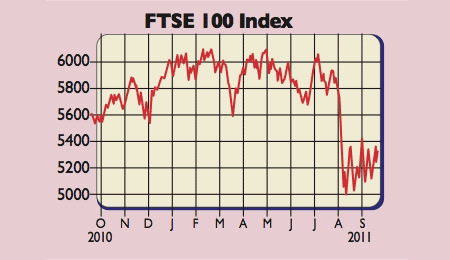
The Bank of England looks set to launch another round of quantitative easing (QE), or money printing. The macroeconomic data are deteriorating rapidly and markets are shaky. Last time, the Bank injected newly-created cash into the economy by buying gilts with it. QE2 is likely to involve more of the same. So what might this mean for stocks?
Credit Suisse says there could be an indirect positive effect on equities through a weaker pound. As 80% of British earnings come from abroad, a cheaper pound bolsters profits. But don’t count on a direct impact. “Monetary policy is much less effective [than usual] in an environment where the economy is deleveraging and appetite for credit is low,” says Morgan Stanley. With the economy concentrating on working off debt, zero interest rates or free money can’t spur borrowing and demand. Last time, says Neil Hume in the FT, QE had virtually no impact on bank lending. More QE may well help give equities a near-term boost, but since it will have scant impact on growth, it’s unlikely to underpin a lasting stock rally.